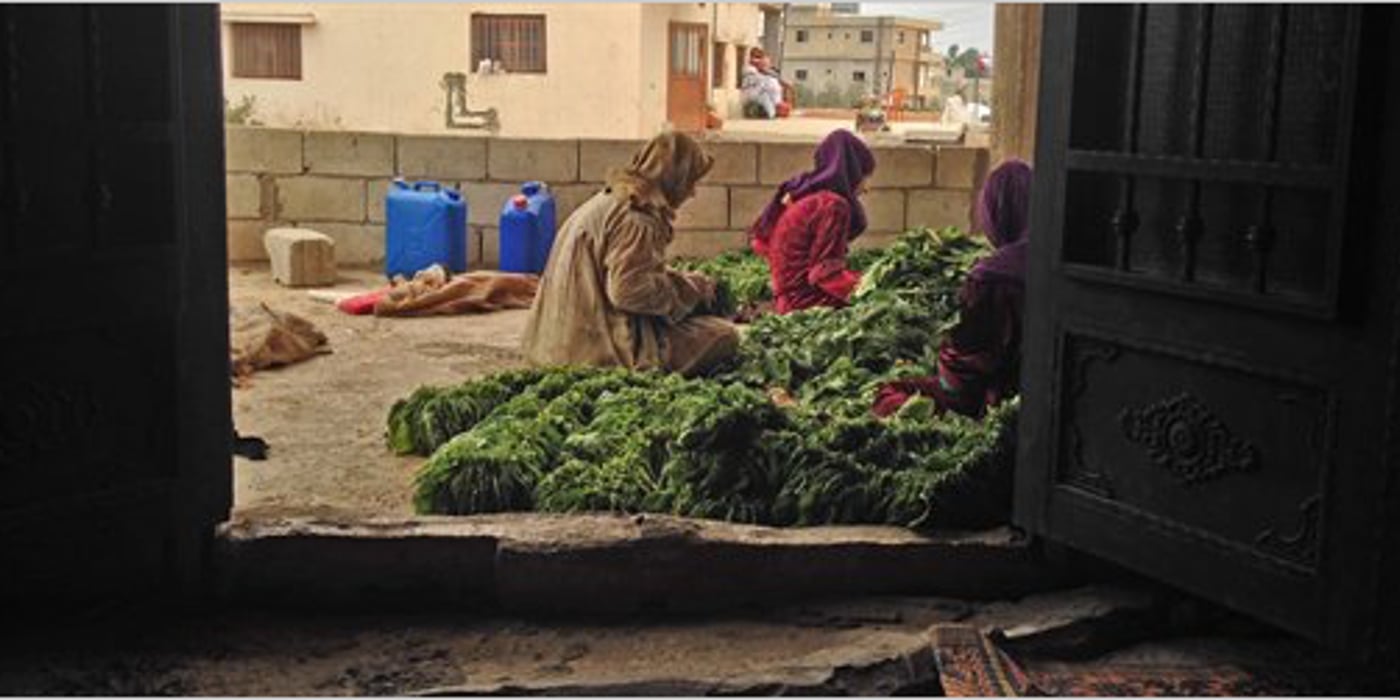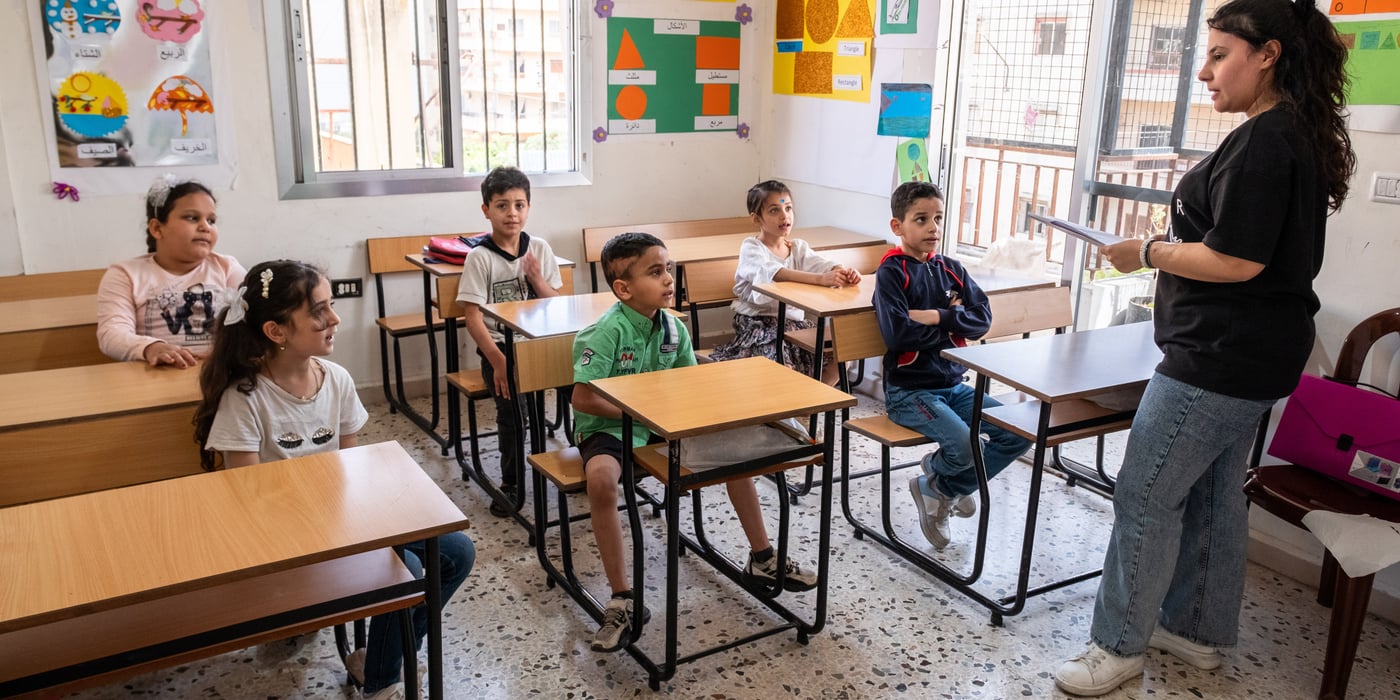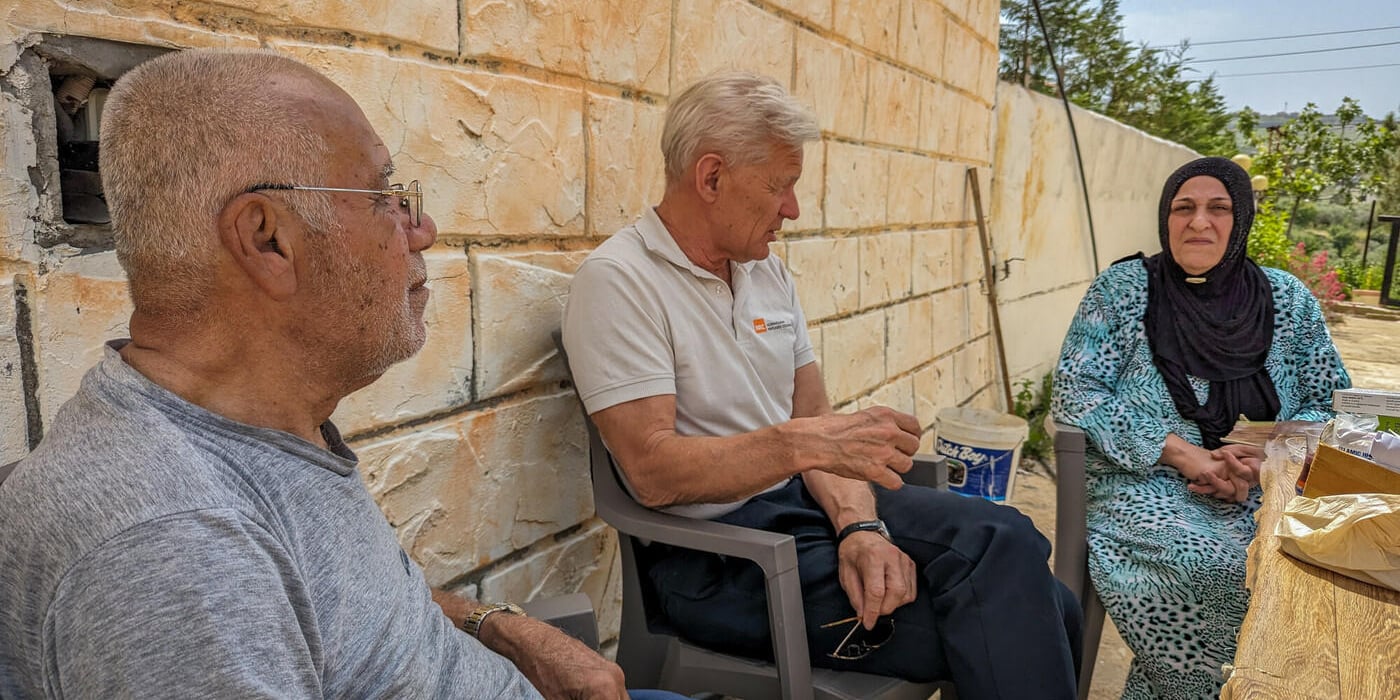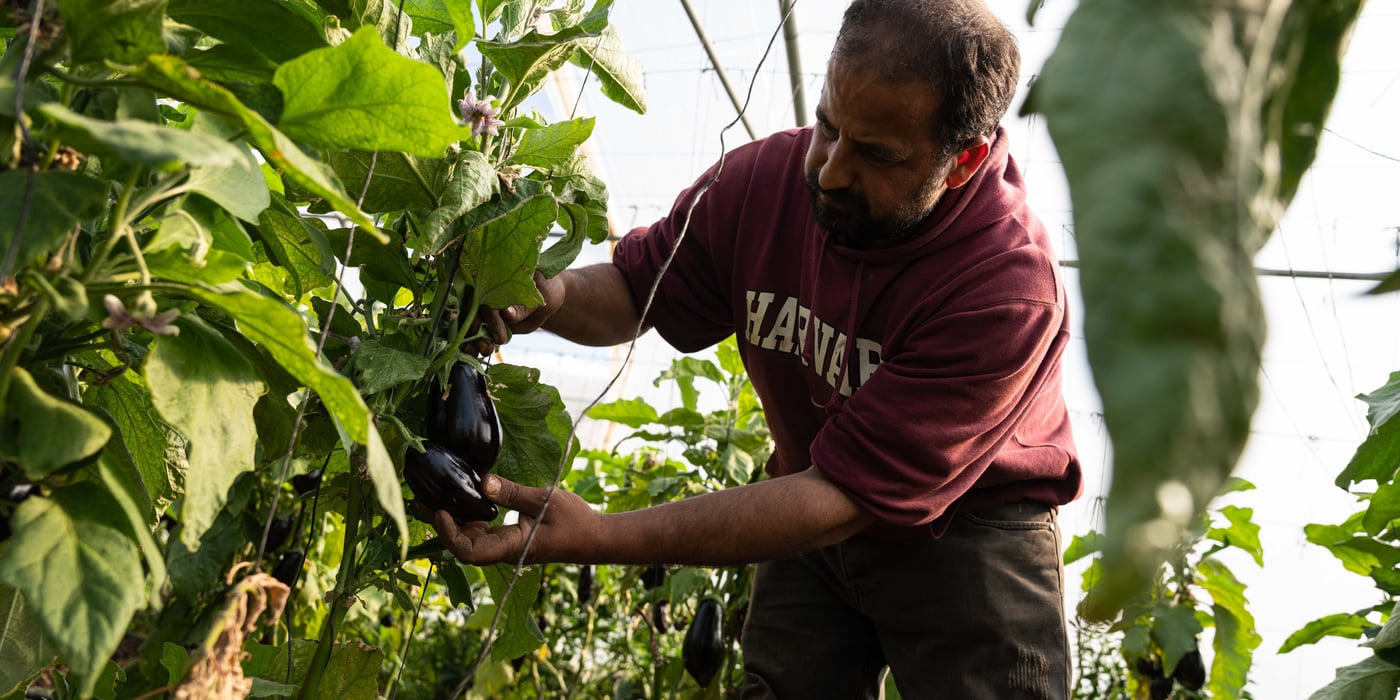
“I'm doing this because I like to help. 26 young Syrian men have been working for us for the last eight years, and I would like to help them, if they want to bring their families here”, she explains.
Her shelter is undergoing rehabilitation by the NRC, to allow her to accommodate refugee families.
The NRC program, funded by DFID, provides money to landlords to rehabilitate their unfinished buildings in exchange for hosting refugees for 12-months free of charge.
Helping
In South Lebanon, Soha, a Syrian widow, and her seven children have moved into a building NRC has already rehabilitated.She and her daughters are busy plucking the tobacco leaves outside of their new shelter. They were taught how to cultivate and harvest tobacco by the landlord, and are paid for the work in return.
“We're doing much better here in this home,” Soha says with relief.
Want work and education
Refugee families usually prefer to settle in homes where there is possible to find work nearby or where the children can attend school, which NRC takes into consideration.
“Refugees generally look for places where they can find work, most likely agricultural ones like tobacco-growing crops or other seasonal activities with possible labour,” says Akram El Hadi, Senior Shelter
Officer in south Lebanon
“The walking distance to schools or neighbouring recreational activities that could provide children or youngsters with education and learning is also of major importance.”
One of Soha’s seven children, a young boy, goes to school after having missed an entire academic year.
“I had postponed sending my son to school because I thought we were going back to Syria. When I realized this wasn’t going to happen, I enrolled him in afternoon classes,” she says, describing the close proximity of the school to the home as an asset.
Cover their needs
Majd, whose household shares a bathroom and kitchen with Soha’s, has been in Lebanon for two and a half years. He and his wife and children had settled in the Bekaa for a year before moving to the south, where they had to change homes three times due to the high expenses of living. His children had to miss two years of school as a result.
The family has now been living in a rehabilitated shelter for the last six months and helped out on the tobacco farm. With the money they gain through working, and the money they are saving on rent, the family is able to cover their basic needs.
“We are more comfortable here than where we were before, as it’s easier for the children to attend school,” Majd says.
A new home
Fatme, the landowner who also owns the tobacco farm, says it took approximately a month and a half for the shelter to be completed. She had originally planned to give the home to her son, but decided to use it to house refugees instead.
“The refugees work on the tobacco farm for almost six months, and spend the other half finding other type of work in the town,” she says.
In cooperation with Lebanese landlords like Fatme and Mona, NRC has been able to provide more than 40.000 refugees in Lebanon with a new home.




